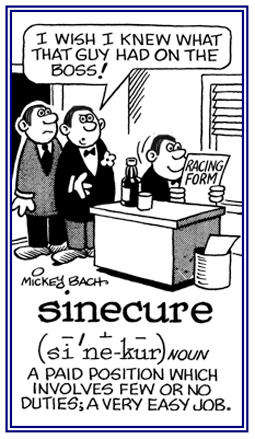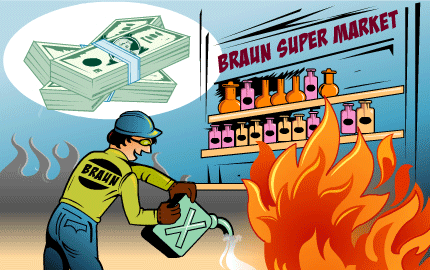English Words in Action, Group S
(a variety of English words which have developed through history and are currently used in our modern age)
Simply click on this banner (or the following link) and you will be on your way to stimulate your brain for greater word comprehension with quizzes based on some of the words in this unit.
The shoddiness of the musical performance resulted in its termination after just one presentation.
2. Inconsiderate, reprehensible, contemptible: The fact that Clyde left his wife, compelling her to get a job and take care of her children at the same time, was a shoddy thing for him to do.
2. An exhibition of art, flowers, animals, or an industry's products: First, Eugenia wanted to go to the flower show in town and then she also planned to see the auto show.
3. An expression or demonstration of something that includes an ability, feeling, quality, etc.: A show of the country's great military strength was performed at the local army base.
4. An appearance given, either as an outward display of an emotion or trait, or as a demonstration of falseness and pretense: James put on a big show of sympathy regarding Fay's falling down; however, he really didn't care.
5. An undertaking or task; especially, one of some size and complexity: A new manager is running the show at Jill's company.
6. An extravagant or impressive display: Boy, those lawyers really put on quite a show during the trial!
7. A place or position at the finish of a race; especially, a horse race or a dog race: Joshua's horse placed second in the show last Saturday.
Henry was the only person Mildred has shown the letter to.
2. To be visible, or to have something easily seen, sometimes without really wanting it to be seen: Shannen told William that a grease stain was showing on the front of his shirt.3. To put on an exhibition or performance, or to be presented for the public to see: As the author of the publication, Corinne has shown her books in several bookstores.
Janet asked, "Janine, did you hear about the new movie that will be showing this week?"
4. To display something publicly; such as, in a sale, exhibition, or competition, or be displayed publicly: Harriet's latest painting will be showing at the Museum of Modern Art next month.5. To give a demonstration of something in order to teach others: Definitions of words tell people the meanings, while examples show people how the words are used.
6. To explain, to demonstrate, or to prove something in a logical way: The writer showed the readers how to solve the word puzzles.
7. To register information: That chart shows how many people are still unemployed.
8. To guide or to accompany someone: Dennis and Helena were shown to their seats by the usher.
9. To call a person's attention to something: The teacher showed the students what they did wrong.
10. To make fundamental qualities or characteristics apparent: Joshua was shown what a good deal he got for his money.
11. To display a personal feeling or a special attitude about something: Ever since she was a little girl, Lorna has shown a real interest in singing.
12. To have a particular appearance when being presented: The new hair style was shown and admired by those who saw Susana at work.
13. To appear somewhere when scheduled or expected: Did Alisa ever show up at the meeting?
2. An artillery shell intended to explode before impact, scattering dangerously sharp metal projectiles intended to wound and seriously harm military personnel: The shrapnel from the artillery barrage was frightening in its intent and effect.
Shrapnel is not the only danger posed by bombs. The exposure of soldiers to blast waves from explosive devices may, like the repeated blows to the head inflicted on boxers in the ring, result in traumatic brain injury which is not always immediately recognized or diagnosed by physicians.
3. Etymology: from British General Henry Shrapnel (1761-1842), who invented a type of exploding, fragmenting shell when he was a lieutenant in the Royal Artillery during the Peninsular War (in 1808–1814, fought by France against Great Britain, Portugal, Spanish regulars, and Spanish guerrillas in the Iberian Peninsula).The invention consisted of a hollow cannon ball, filled with shot, which burst in mid-air; his name for it was "spherical case ammunition".
Morgan lost his sight when he was just five years old.
2. The act of seeing someone or something: Darleen said that she didn't know the neighbor's name but that she knew her by sight.Corey faints at the sight of blood.
When suggestions were made at the meeting, the chairman maintained that they must not lose sight of their goals.
3. A position in which someone or something can be seen: When Kesha looked outside to see what the noise was, there was nothing in sight.4. Goals or expectations: The manager of the store lowered his sights for monthly sales down by three percent.
5. A tool or device that is used to aim a gun: Emilio adjusted the sight of his rifle for greater accuracy as he was about to shoot at the target.
The tourists in the park were sighting several buffaloes and deer as they drove around.
2. Immature, featherbrained, lacking common sense: Greg is considered to be a silly person when he says that getting a university education is a waste of time.
3. Descriptive of being foolish, inane, or absurd: That silly joke that Walter told made everyone laugh. 4. Etymology: silly is a spelling variant of an earlier adjective seely, which has long-term roots in Germanic languages.
Its basic sense was "blessed, fortunate", and the meaning of the German selig still has that meaning. The earliest thirteenth-century meanings of seely were "happy, fortunate", "spiritually blessed", and "pious, holy, good".
From these beginnings, it started to be used in the sense of "blameless, innocent", which was often used to express sympathy for those who suffered undeservedly. Those who were innocent victims can also be thought of as deserving pity, and seely was used this way, too; such as, "pitiable, helpless, and defenseless".
Silly has undergone considerable sense development from the original meaning of "happy". The sense of "innocent" is first recorded in about 1200, that of "weak" about 1300, and that of "unfortunate, pitiable", about 1280.
From these senses developed the meanings of "simple, rustic, ignorant", which was first recorded before 1547, and the concept of "lacking in reason" or "sense, foolish", was recorded in 1576.
2. Behavior that is considered to be wrong by those who believe they understand the expectations of God's will: The pastor preached to his congregation that they should confess their sins and ask for God's forgiveness and to sin no more.
3. That which is in opposition to God's benevolent purposes for people: To engage in war and to deliberately murder people is considered to be a major sin.
4. Any reprehensible or regrettable actions, behaviors, lapses, etc.; great faults or offenses: There are multitudes of sins that are committed everyday by many people.
Sin is a barrier that separates humans from God
According to the biblical writers, sin is an ever-present reality that enslaves the human race and has corrupted God's created order.
The concept of sin is first, and foremost, a religious concept, because all sin is ultimately against God, God's laws, God's creation, God's covenant, and God's purposes and it is said to be the basic corrupting agent in the 'entire universe'.
"There are numerous Hebrew and Greek words used to designate sin in biblical writings and it is and apparently the most basic Hebrew word meaning "revolt" or "transgression" and indicating a deliberate act of defiance against God.
Sin is the name given to moral evil when it is considered from a religious point of view.
Christianity sees sin as a deliberate violation of the will of God which is attributable to human pride, self-centerdness, and disobedience.
2. To commit offenses or violations that are regarded as being shameful, deplorable, or utterly wrong: Those who have not murdered or committed adultery have sinned when they don't tell the truth or when they worship false idols; such as, wealth or human powers as being more important than God.
Very often, people are defensive of their sins because they have not been able to stop sinning with their own strength; for example, when they can't stop smoking, they rationalize about its presence in their lives by making the humiliating confession that they "can't conquer it"; so, they present arguments that there is no one who can be perfect.
2. That which is an absolute prerequisite: The phrase sine qua non refers to a necessity or an indispensable condition or qualification for a particular purpose.
Wind, for example, is a sine qua non for flying a kite!
3. Etymology: from Latin, sine- "without" + qua, "which" + non, "not."

Go to this Word A Day Revisited Index
so you can see more of Mickey Bach's cartoons.

Go to this Word A Day Revisited Index
so you can see more of Mickey Bach's cartoons.

Links to all of the groups of English words in action, Groups A to Z.
You may see the bibliographic list of sources of information for these words in action.


